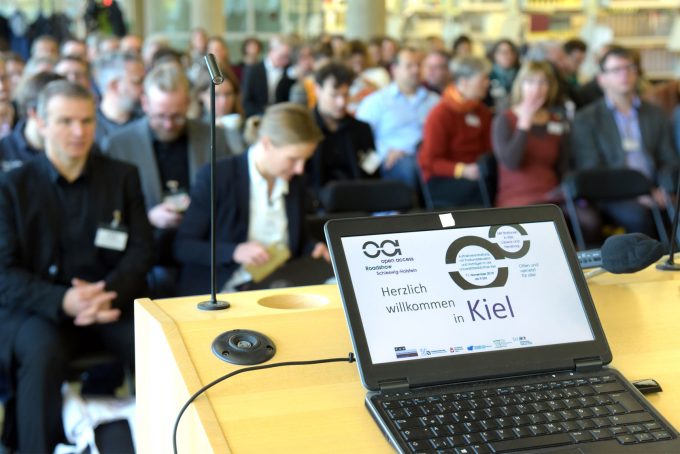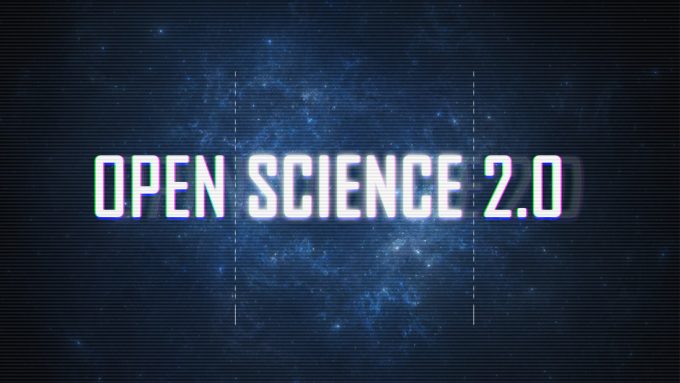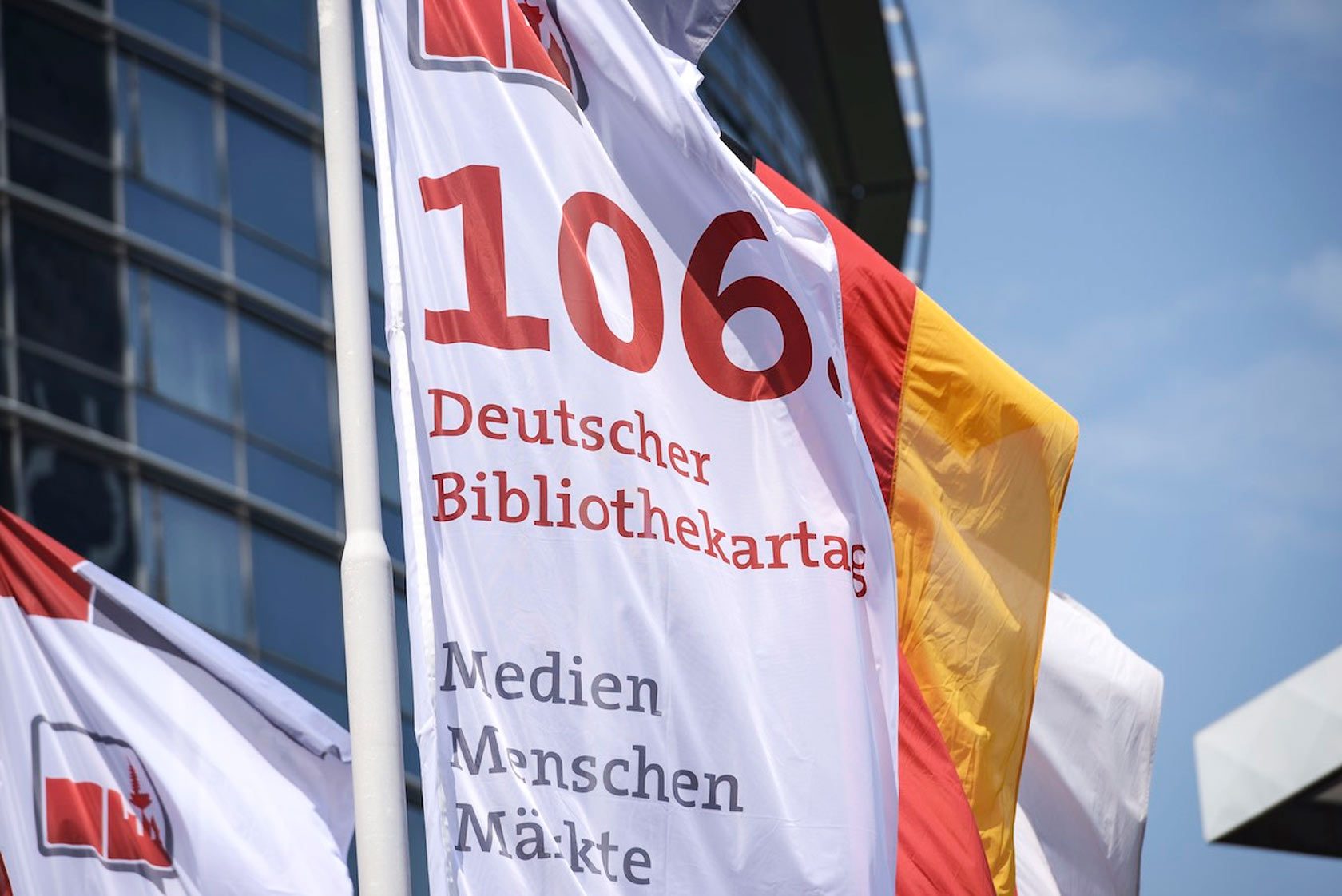
Open Access at German Librarians´ Day 2017: From the Big DEAL to the Everyday Workplace
A variety of sessions and lectures at Librarians´ Day 2017 (Bibliothekartag 2017) were devoted to Open Access. This shows how important the topic has become to the daily work of libraries. This blogpost gives an overview of these contributions to Open Access.
by Olaf Siegert
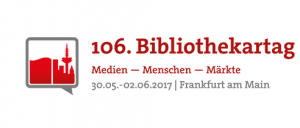 From 30th of May until 2nd of June 2017 the 106th Librarians´ Day (Bibliothekartag 2017), the annual central meeting of the German-language library system, took place in Frankfurt am Main. Approximately 3,800 participants met under the motto “Media – People – Markets”. The offerings included nearly 400 lectures (many of which can be found here).
From 30th of May until 2nd of June 2017 the 106th Librarians´ Day (Bibliothekartag 2017), the annual central meeting of the German-language library system, took place in Frankfurt am Main. Approximately 3,800 participants met under the motto “Media – People – Markets”. The offerings included nearly 400 lectures (many of which can be found here).
Various aspects of Open Access were the focus of about 20 of these lectures, and the topic was also addressed in a panel discussion, several workshops and company presentations, as well as various poster presentations.

Short-term panel discussion on DEAL
The Tuesday started with the very exciting short-term GeSIG panel discussion on “Librarians’ views on ‘DEAL’”. This session focused on the DEAL initiative, an alliance of German scientific organisations that aims to complete nationwide licensing agreements that include an Open Access component with the major scientific publishers. The panel discussion centred on the questions:
- What is the status of the negotiations?
- What will DEAL offer to libraries?
The panel consisted of:
- Susanne Goettker (University and State Library of Düsseldorf)
- Dr. Hildegard Schäffler (Bavarian State Library, Munich)
- Dr. Frank Seeliger (Library of the Technical University of Applied Sciences, Wildau)
- Dr. Franziska Wein (University and Research Library of Erfurt/Gotha)
There was an overwhelmingly positive response to the DEAL initiative, which has generally been welcomed by libraries. In addition, various detailed questions were answered, for instance, that there is no obligation for individual libraries to participate, and the switch to an Open Access model is not expected to take place over night, but rather as a multi-year phased transition.
Different intermediate positions on Open Access state strategies
Also on Tuesday there were two equally well-attended in-depth lecture sessions on Open Access held in the large function rooms. The first session was “Open Access: Strategies and Policy”, which included four lectures. At the beginning of the session, Beate Rusch (Zuse Institute, Berlin) and Jürgen Christof (University Library of the Technical University of Berlin) discussed the topic of “Open Access as an Attitude” and dealt with, among other questions, the issue of how libraries can more strongly support Open Access transformation. Then Isabella Meinecke (State and University Library of Hamburg) explained Hamburg’s Open Access strategy and came to a rather cautious conclusion in light of various shifts in political activity.
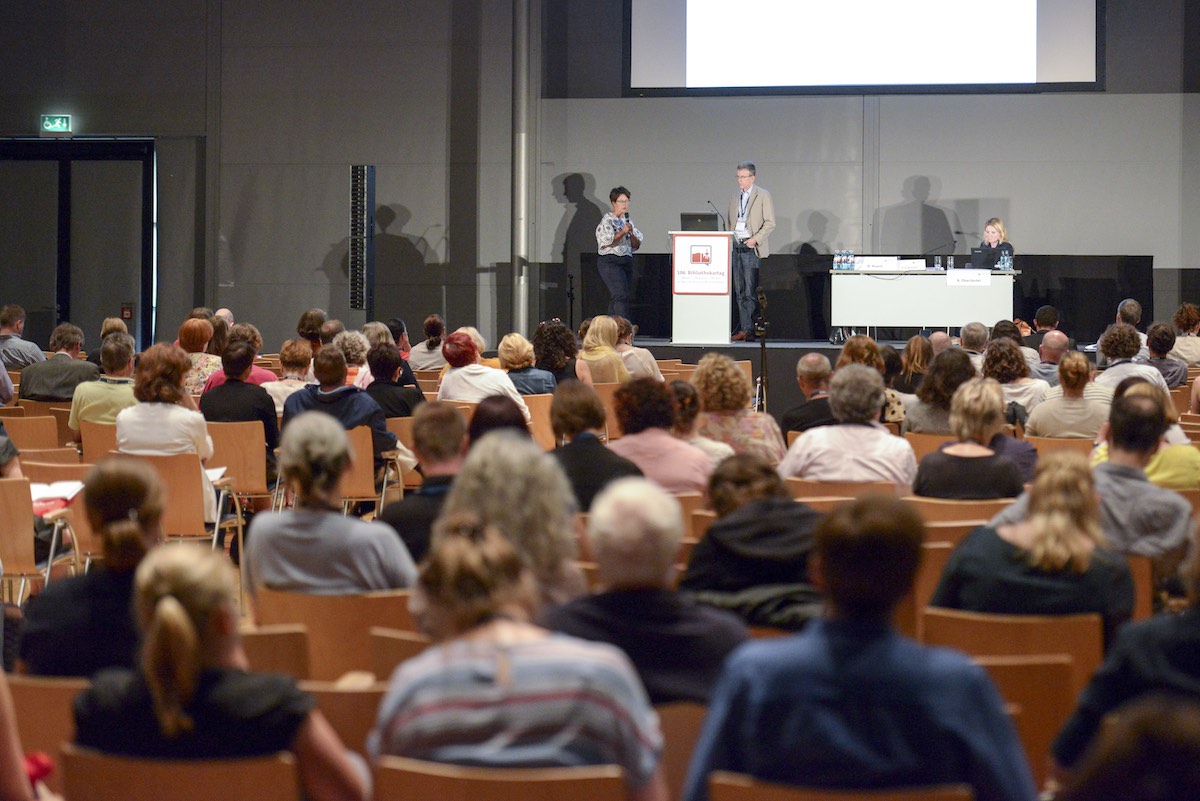
Subsequently, Andreas Hübner from the Open-Access-Büro Berlin (Open Access Office Berlin) presented the Berlin Open Access strategy and, in addition to explaining the detailed design, was able to point to small implementation successes, such as the increase in Open Access representatives at the Berlin universities or the creation of a study on publication practices. In the final lecture of the session, Torsten Reimer of the British Library presented the “Scholarly Communications License”. This is an interesting model for secondary rights from the point of view of the scientific organisations, and is very closely linked to Anglo-American copyright law.
Skip to PDF contentReport on Open Access practices
The following session, “Open Access in Practice”, also included four lectures on the subject of Open Access especially from the librarian practice. In their lecture “Open Access media in the library catalogue! Opportunities & Risks”, Martin Blenkle and Manfred Nölte of the State and University Library of Bremen spoke about using the BASE search engine to integrate Open Access publications into a local discovery system. After that, Lambert Heller from the Library for Science and Technology and the University Library of Leibniz University Hannover reported on the German Research Foundation project “Reuse of Open Access Images (NOA)”, which is developing a method for the automatic collection, indexing, and distribution of scientific images from Open Access journals. The texts and illustrations of the articles are to be stored and described via Wikisource, Wikimedia Commons, and Wikidata.
Susanne Maier (State Library of Berlin) devoted herself to the topic “Open Access Grey“, and in her talk she analyzed the various framework conditions for the provision of official printed material on the internet and compared the situation in the EU, the USA, and Germany.
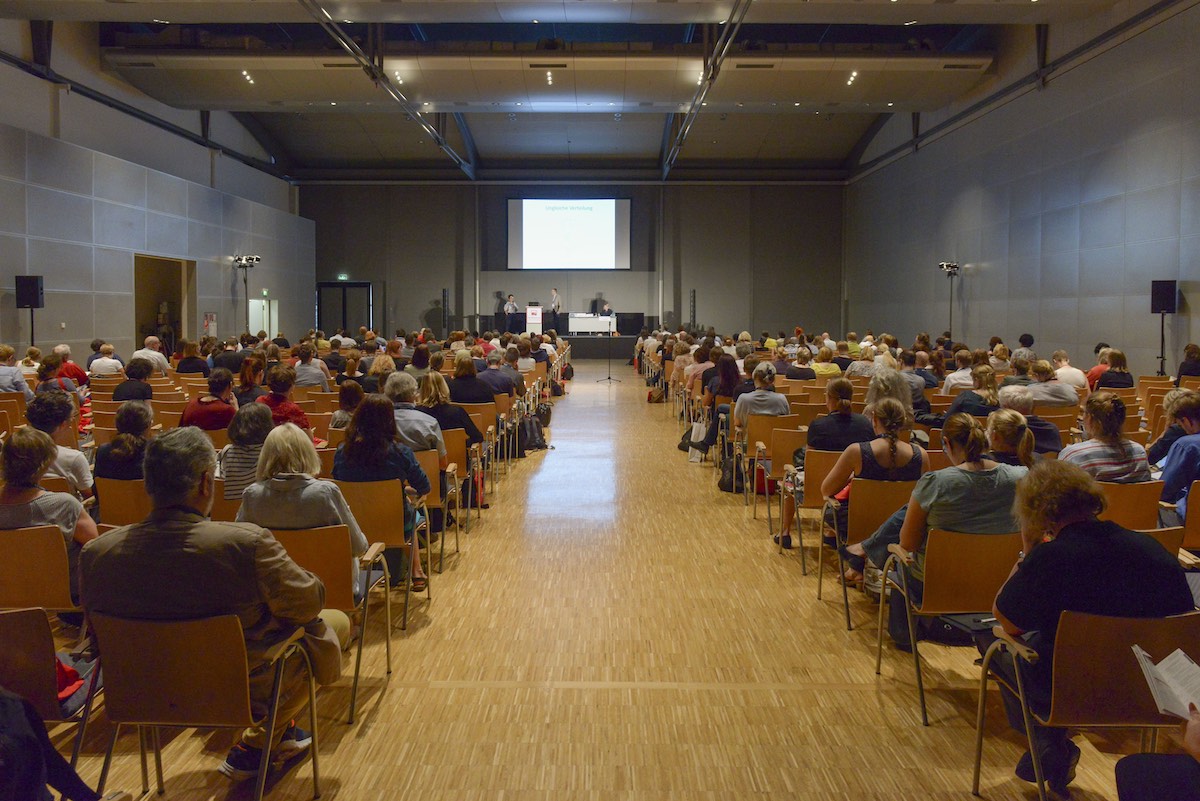
The final lecture in the practices session was given by Evelinde Hutzler from the University Library of Regensburg. She addressed services related to Open Access provided by the EZB (Electronic Journals Library), and described a joint project with the Bielefeld search engine BASE, among other projects. In addition, the EZB also cooperates with the DeepGreen project, which deals with the secondary rights of alliance and national licenses.
Offsetting models and practices
Wednesday’s activities included an interesting company session from Taylor and Francis, in which Susanne Tremmel from the Austrian library consortium KEMÖ presented a practice report from Austria, in addition to the providers’ different offsetting models (or offset agreements). This made clear what is necessary so that an offsetting contract can be implemented satisfactorily for both parties – in this case, both publishers and libraries must review long-term business processes and adapt them to Open Access conditions. Following this, Alexandra Jobmann from the Leibniz Institute for Science and Mathematics Education at Kiel University reported on the role Open Access plays in the operations of a small institute library.
The session “Open Everything?” went directly to the topic of offsetting: in his very interesting lecture on offsetting contracts, Bernhard Mittermaier (Jülich Research Centre) explored the framework conditions that must be fulfilled to ensure that these contracts are not just a continuation of the subscription model, but actually initiate a change in funding of publications that reflects the principles of Open Access transformation.
How does Open Access change libraries, and how can you stay up to date?
In the afternoon, Jasmin Schmitz from the Information Centre for Life Sciences (ZB MED) organised a workshop on the topic “Open Access Consulting in Concrete Terms: What tools can I use? How do I keep up to date?”. Among other things, tools that can be used to answer queries or be passed on to users as a source of information, such as SHERPA/RoMEO and OpenDOAR, were discussed and tried.
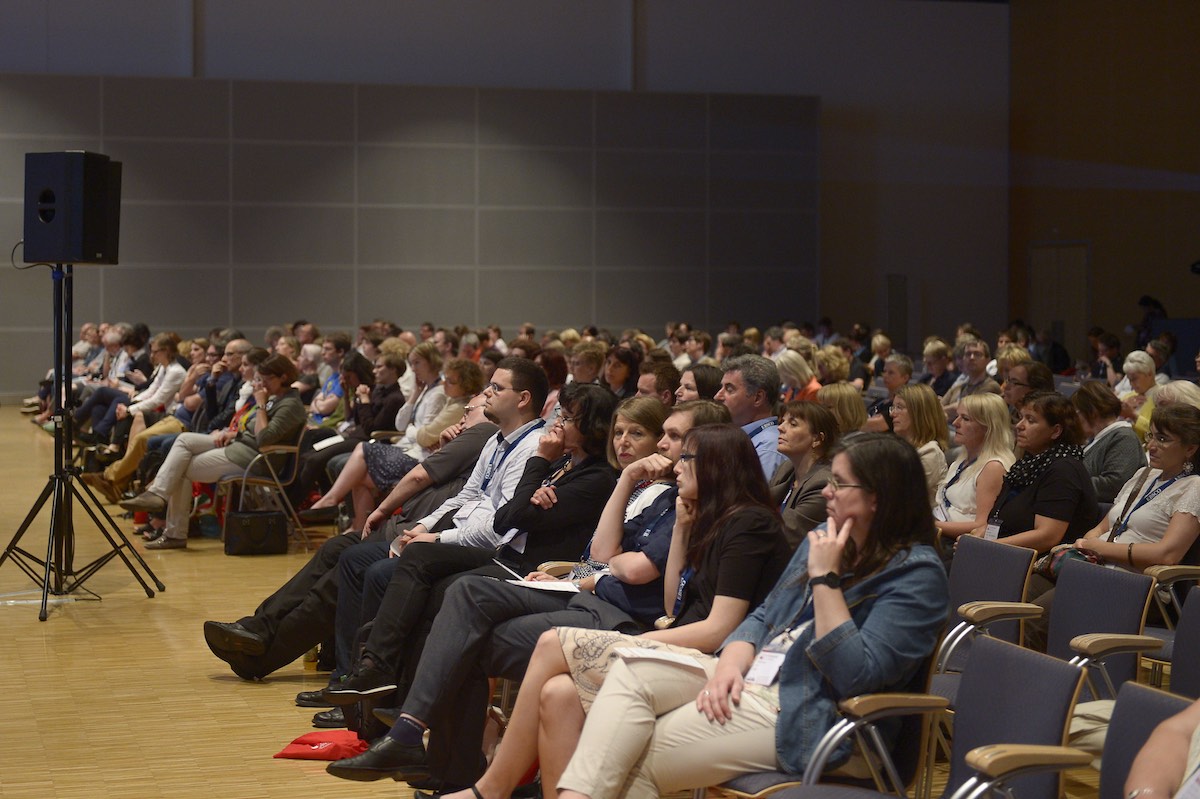
On Thursday morning, the public work meeting of the German Library Association’s commission for acquisitions and collection development dealt with Open Access as a topic of relevance to acquisitions. The topics discussed here included how Open Access changes library acquisition processes and the associated opportunities and risks. There were two practical reports from university libraries, one by Dirk Pieper (Bielefeld University Library) and the other by Anke Rautenberg (Communication, Information, Media Centre (KIM) of the University of Konstanz). The session was supplemented by a lecture by Sven Fund (Knowledge Unlatched), which dealt with the possibilities Open Access offers in the field of humanities monographs.
Disciplinary Peculiarities
In the afternoon followed a session on the topic “Open Access in Art and Museum Libraries”, which was organised by the AKMB (Working Group of Art and Museum Libraries). As part of this event the author of this blog post examined the state of development and the disciplinary characteristics of Open Access. In order to take into account the publication culture of the humanities in particular, a more intensive expansion of the possibilities for Open Access monographs through suitable funding programs and publication infrastructures is imperative. The second lecture of the session, “Open Access is for us all! On current publication behaviour in art history”, was presented by Maria Effinger (Heidelberg University Library) and highlighted the impressive variety of support services available for Open Access publications through the university library.
A lecture by Veit Probst (Heidelberg University Library) in another Thursday session also dealt with the situation in Heidelberg, and was entitled “E-Publishing and Open Access in the Context of Specialist Information Services”. It focused primarily on the three specialist information services (FID) operated by University of Heidelberg in cooperation with partner institutions: Ancient Studies (Propylaeum) with the Bavarian State Library Munich, Art (arthistoricum.net) with Saxon State and University Library Dresden, and Asia (CrossAsia) with the State Library of Berlin. For all three FIDs, Heidelberg is assuming the core task of providing relevant Open Access publishing platforms.
Conclusions
Although some voices claim that Open Access is no longer a relevant topic for academic policy debates, in the sense of being “hip” and “modern”, the strong presence of the topic at the library day demonstrates that Open Access remains very much in the spotlight and that libraries increasingly engage with it as part of their normal work routines (see also the blog post by Jürgen Christof). At the same time, the topic’s presence at the library day is all the more noteworthy because a few years ago, a practice seminar was established with Open Access Day, which with approximately 300-400 participants also attracts many people from the library field.
Fotos: K.I.T. Group GmbH© / Jose Poblete
View Comments
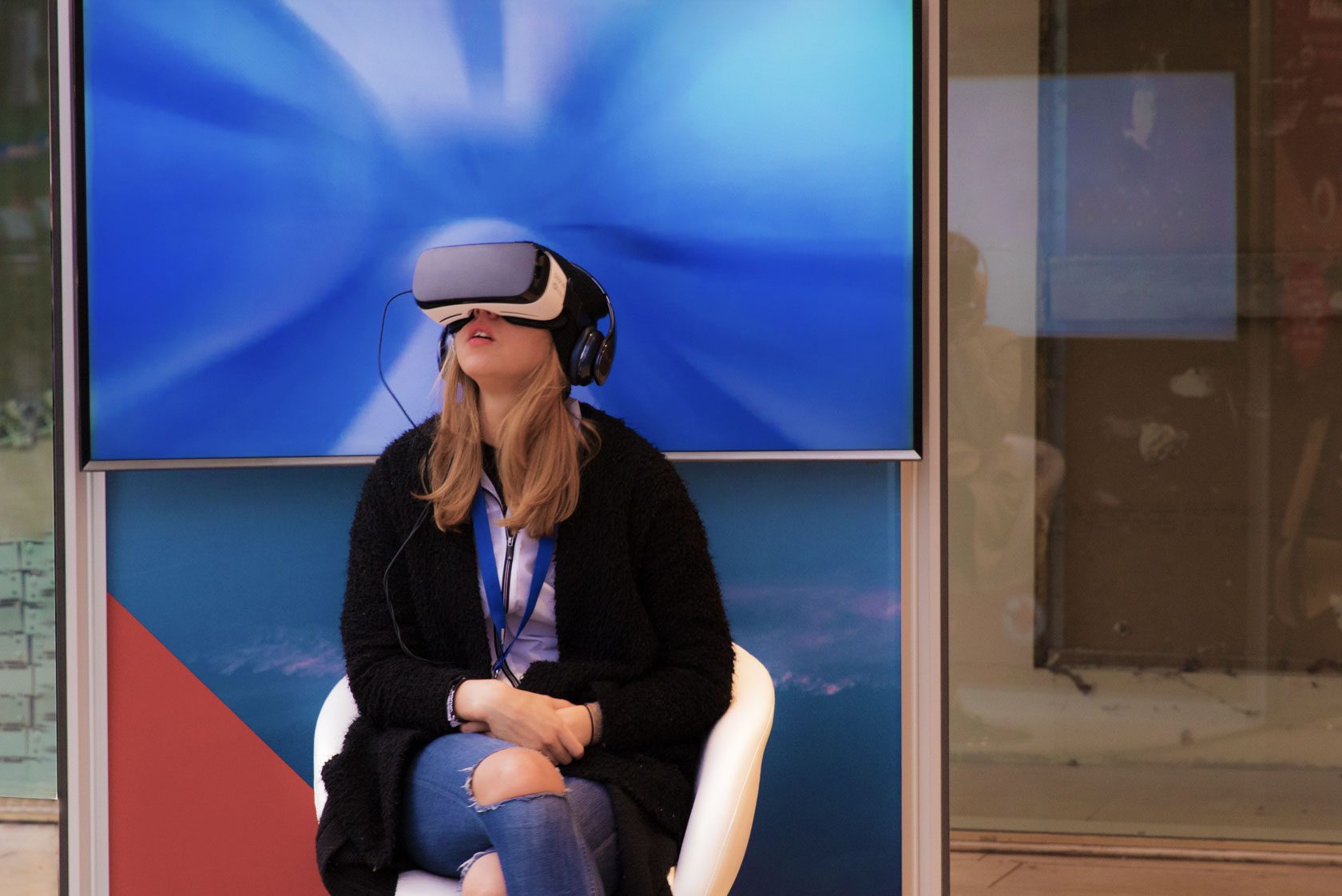
Google Conquers Education and Brings Augmented Reality Into the Classroom
Google is working on many levels to firmly establish itself in the education sector,...

